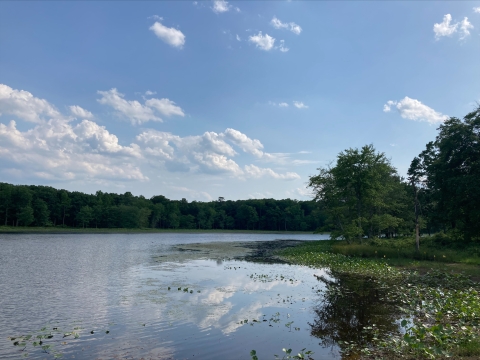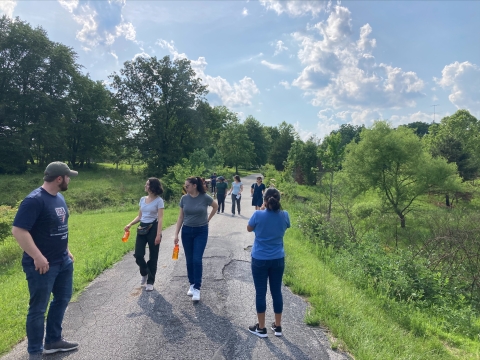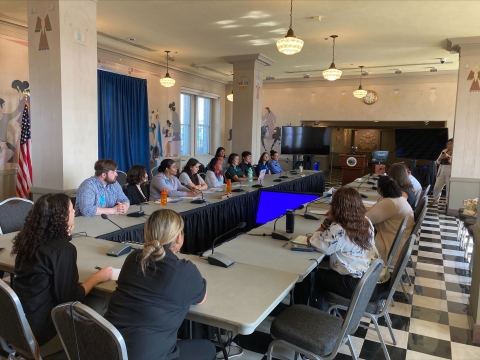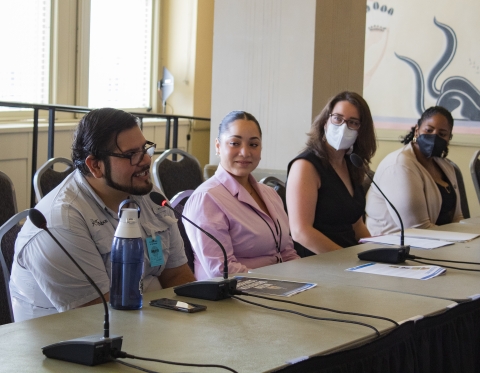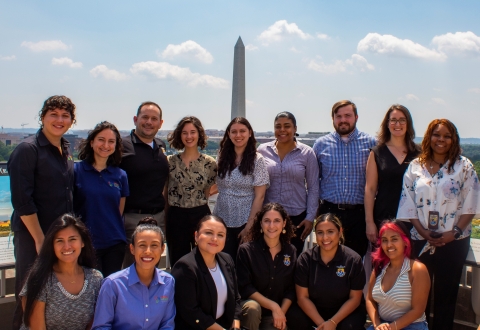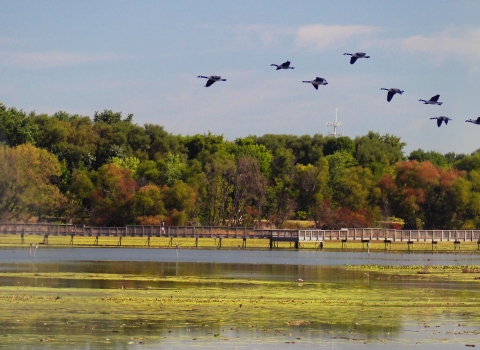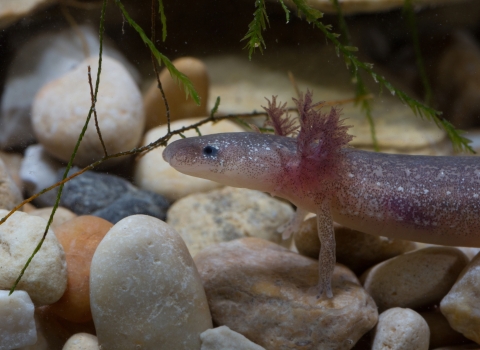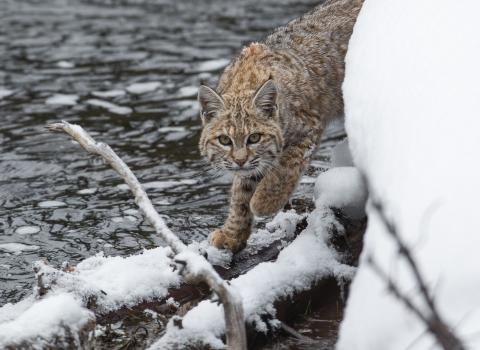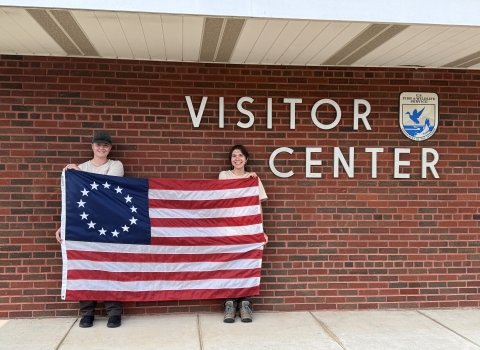On a hot and humid late afternoon on the first of June, we walked a leisurely mile-and-a-half around the perimeter of Cash Lake, a large and vibrant impoundment on the South Tract of the Patuxent Research Refuge. I was tagging along on the hike with the region's latest cohort of Hispanic Access Foundation interns, a group of intelligent and downright-pleasant young individuals with a heck of a summer ahead of them. They'd just arrived in the Washington-Baltimore metro area for the Hispanic Access Foundation Internship Orientation, a three-day summit to meet with Hispanic Access Foundation and Service staff and learn the ins and outs of the Service before shipping off to their respective field stations for the season.
The refuge visitor center air conditioner we'd enjoyed most of the day was sorely missed, but spirits were high on the trail as the interns chatted about their new positions, occasionally stopping to call out toads, bluebirds, and even the odd cormorant sunbathing by the water. It was a fitting way to kick off the summer for the interns – the first of many days spent outside in nature and connecting with others through conservation.
Partnered through the MANO Project initiative, the U.S. Fish and Wildlife Service and the Hispanic Access Foundation work together to connect Latinx students and people of color with the outdoors and projects that protect natural resources. MANO Project internships and fellowships with the Service provide extensive training, mentoring, and professional development to ensure that students have the knowledge and resources to be successful - both during and long after their internships are finished.
This year's cohort brings a passion for nature and a broad range of cultural backgrounds and perspectives. Karla, for example, a native of Puerto Rico who will be stationed at John Heinz National Wildlife Refuge, majored in Astrophysics; Deliannie, whose family comes from Guatemala, will be working with the Providence Parks Urban Partnership and is pursuing her degree in Secondary Education.
Over the three days, interns were given a crash course on the mission and programs of the U.S. Fish and Wildlife Service, as well as the Northeast's regional priorities and key conservation issues. Interns also learned about the role they will play in planning and leading events during Latino Conservation Week (July 16-24), an initiative to connect Latino communities with nature and help foster a new generation of environmental stewards.
At the heart of the orientation was a series of honest conversations on fostering a culture of diversity and inclusion in wildlife conservation -- both on successes to celebrate, and the challenges that still lie ahead. Among the speakers, the cohort heard from Chief of Refuges Scott Kahan and Chief of Visitor Services and Cultural Resources Lelaina Muth about the National Wildlife Refuge System and Urban Wildlife Conservation Program; Genevieve LaRouche and Ela-Sita Carpenter and their efforts to engage underserved communities at Masonville Cove; and a panel on navigating Service careers as people of color featuring HQ Service staff and HAF alumni.
The trip culminated in a special visit to the Main Interior Building in D.C., where we met with Shaun Sanchez, the Deputy Chief of the National Wildlife Refuge System.
Sanchez, whose 20+ year career has taken him to refuges across the country, spoke candidly with us about his pathway into public service and lessons learned along the way. As a Latino himself, initiatives that build diversity within the Service and eliminate barriers of access to the outdoors for people of color are near and dear to Sanchez’s heart. He emphasized two of the Urban Wildlife Conservation Program's standards of excellence in particular that help guide these efforts: Knowing and Relating to the Community, and Being a Community Asset.
From D.C. we bid farewell with the cohort as they departed to their field stations, where they’ll spend the summer learning everything from bird banding to environmental education programming -- and I can't help but be just a bit jealous.

